Protesters join together to draw attention to the violence in Gaza and call for an arms embargo.
The 2024 Democratic National Convention came to a close last week after delegates cast their votes, the Obamas took the mic and Kamala Harris officially accepted the presidential nomination.
During those four days, thousands of protesters gathered at Union Park with handmade signs and banners calling for an immediate ceasefire in Gaza and a withdrawal of U.S. military aid to Israel.
“This is our Vietnam,” said one of the speakers, who kicked off the final march before Harris took the stage at the United Center.
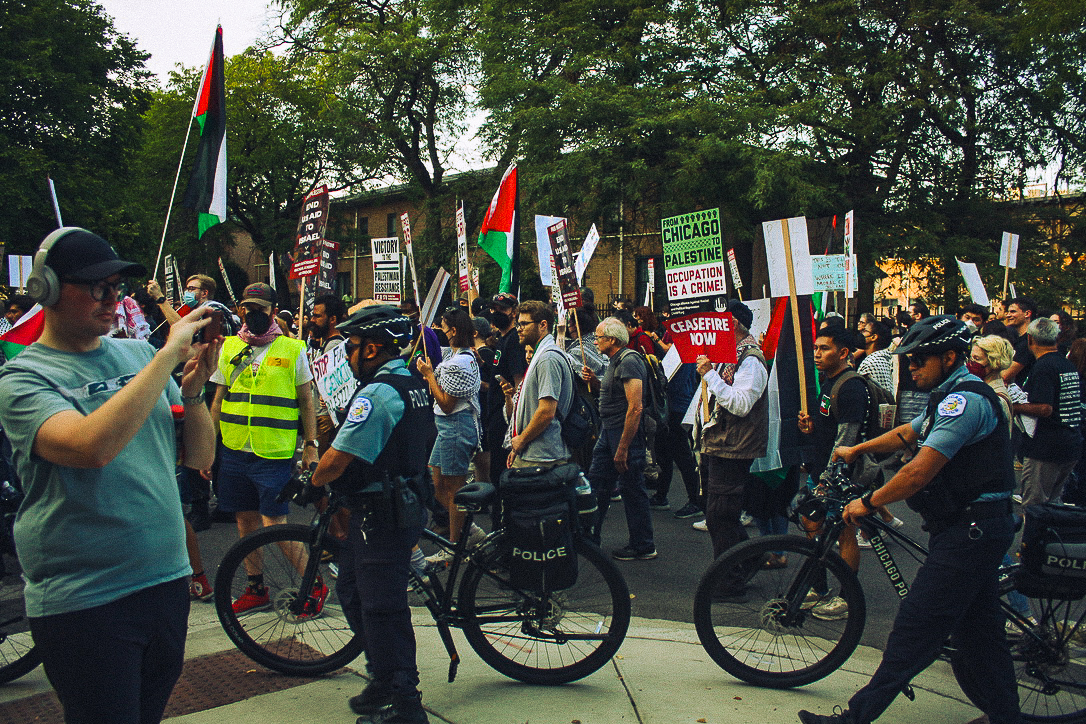
Pro-Palestinian protesters march down Washington on Thursday, August 22, chanting, “From the river to the sea, Palestine is almost free” and “Free, free Palestine,” as police officers with bikes line the perimeter. Photo by Varun Khushalani.
The 1968 DNC
Forty-four years ago, Chicago hosted the DNC, where Americans famously protested U.S. involvement in the Vietnam War.
The Vietnam War began in 1965, after North Vietnam defeated the French colonial administration and wanted to unify the country under a communist regime, supported by the Soviet Union, China and other countries from the Eastern Bloc. On the other hand, the South Vietnamese government aimed to be a democratic republic, more closely aligned with the U.S. and anti-communist countries.
U.S. military advisors were introduced in the 1950s, and active combat units were introduced by 1965. U.S. involvement increased under John F. Kennedy from 1,000 military advisors to 23,000 in 1964. By 1969, when Lyndon B. Johnson was president, more than 500,000 U.S. soldiers were stationed in Vietnam.
American discontent with the war grew as more American soldiers and Vietnamese civilians died, and environmental and economic damages worsened. By 1968, anti-war protests were underway, including walkouts at over 883 college campuses, according to the National Strike Information Center.
Johnson’s approval ratings dropped from 70% in mid-1965 to below 40% by 1967, and in March 1968, President Johnson (D) announced that he would not seek re-election. Shortly after, his vice president Hubert Humphrey (D) entered the race.
Due to the ongoing U.S. involvement in Vietnam, protests continued with the most intense rally taking place at the 1968 Democratic National Convention.
Protesters, reporters and other civilians were met with police brutality and violence by the Chicago Police Department, which was reportedly given a “shoot to kill” order by Mayor Richard J. Daley. Eleven civilians were killed, 500 were injured, and more than 2,150 were arrested. Clashes between anti-war protesters and police rattled the country and became one of the most controversial political events in modern U.S. history.
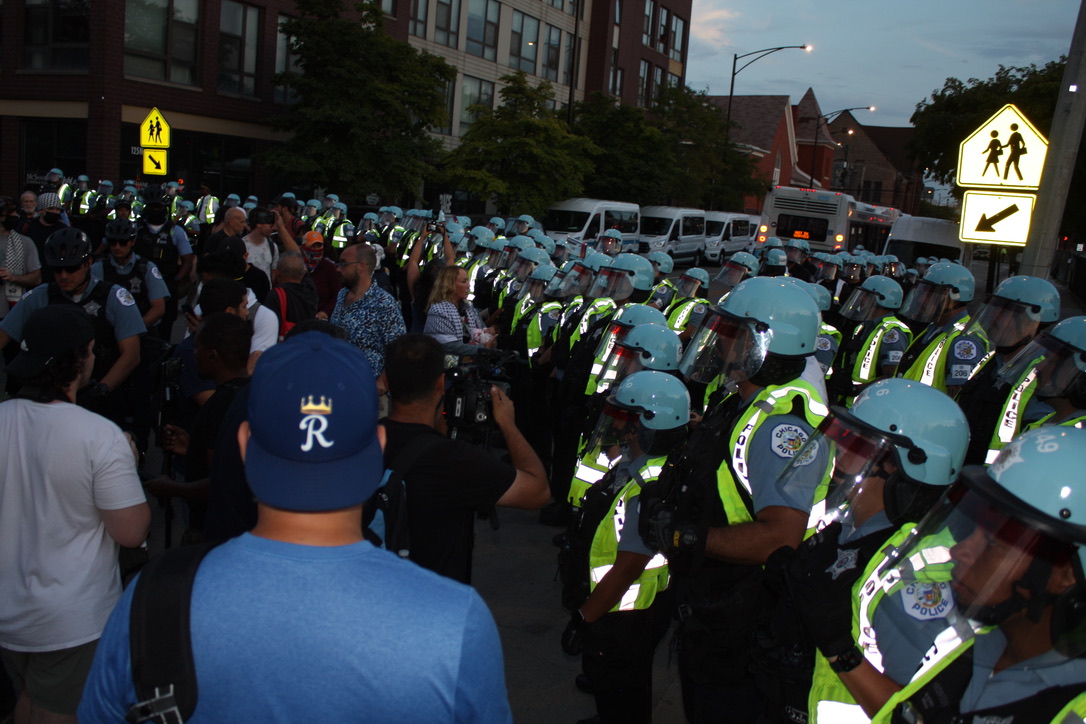
Police officers in helmets, face coverings and yellow vests guard the streets near the United Center where Vice President Kamala Harris prepared to officially accept the presidential nomination on Thursday, August 22. Photo by Varun Khushalani.
The 2024 DNC
This year, Chicago braced for another chaotic DNC with anti-war protests. This time, it was against the conflict in Israel and Palestine.
The Israel-Palestine conflict reached an important turning point in 1948, after Israel declared its independence, and Egypt (supported by Saudi Arabian, Sudanese, and Yemeni troops), Iraq, Jordan, Lebanon and Syria invaded Israel. Last year, on October 7, Hamas launched an attack on Israel, killing nearly 1,200 people and leading to an eruption of violence.
Since then, over 100 Israeli hostages are held by Hamas, and more than 40,000 Palestinians have been killed. Pro-Palestinian protests ensued, and encampments were set up across more than 100 college campuses.
“I love seeing what’s going on on campuses. They’re carrying forward what we had done during Vietnam, and it’s super to see because that gives me hope,” said Anne Houston, one of the protesters at Union Park on Thursday, August 22.
Houston, 71, was a student during the ‘60s and remembers the student protests that broke out after the U.S. military invaded Cambodia. She watched the recent student encampments erupt across the country and applauded the current generation of students who, as she sees it, are continuing the anti-war activism from 40 years ago.
- Protestors march down the street, and police officers follow alongside.
- Photos by Varun Khushalani.
Many students, including some who took part in the encampments, traveled to Chicago to attend the protests. One organization, Students for a Democratic Society (SDS), gathered on the field holding banners and signs urging the Democratic nominees to “divest from genocide.”
Several protesters, including Andrew Gregg, say their votes depend on an arms embargo.
“The Democrats want to put forth this patina of diversity and representation, and they succeed at that, except when it comes to Palestine and the genocide that they’re underwriting,” Gregg said, echoing the sentiment that many liberals felt about the Vietnam War during the ‘60s.
According to a Gallup poll from March of this year, 55 percent of Americans disapprove of Israel’s actions, while only 36 percent approve. While American discontent grows, the U.S. remains “committed to the security of Israel,” according to a press release from the State Department.
“I’m a realist, but she needs to earn my vote,” said Jay Sosa, another protester at Union Park. “I think the Harris campaign has been doing a lot of virtue signaling, and it’s kind of like the bare minimum that they can be doing.”
In 1968, the Humphrey-Muskie ticket failed to gain the confidence of Democratic voters, unite liberals or attract anti-war voters. They lost the presidential race, making the next U.S. president Richard Nixon – a president who continued to send American soldiers to Vietnam, escalated the war through air offensives and bombings, and resigned after impeachment proceedings began for obstruction of justice.
Now as the official Democratic presidential and vice presidential nominees, Kamala Harris and Tim Walz continue their campaign in key battleground states. Last night, they took part in an exclusive CNN interview, where Harris reiterated Israel’s right to defend itself while also calling for a ceasefire.
“Far too many Palestinians have been killed and we have got to get a deal done,” said Harris in the CNN interview. “This war must end.”
Her opposition, former President Donald Trump, shares less sympathy for Palestinian suffering, announcing in the June debate against Biden that the U.S. should allow Israel to “finish the job.”
In the coming months, protesters say they will continue to show their support for Gaza and Palestinian security.
“I feel it’s my duty to stand for my friends and to stand for people who are suffering in the world,” said Houston.
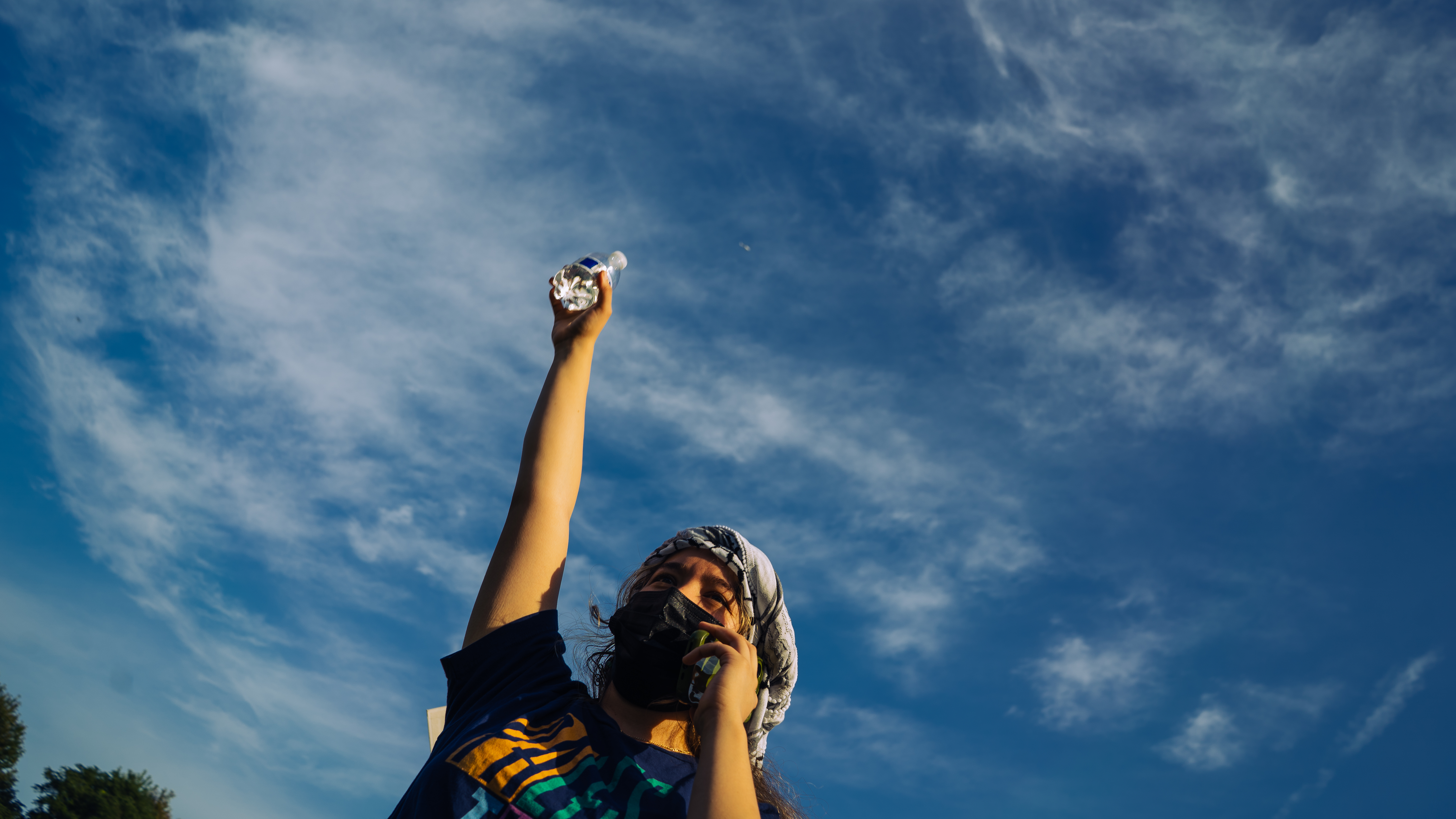
A pro-Palestinian protester raises their hand at the Union Park rally on Thursday, August 22. Photo by Varun Khushalani.
Header photo by Varun Khushalani


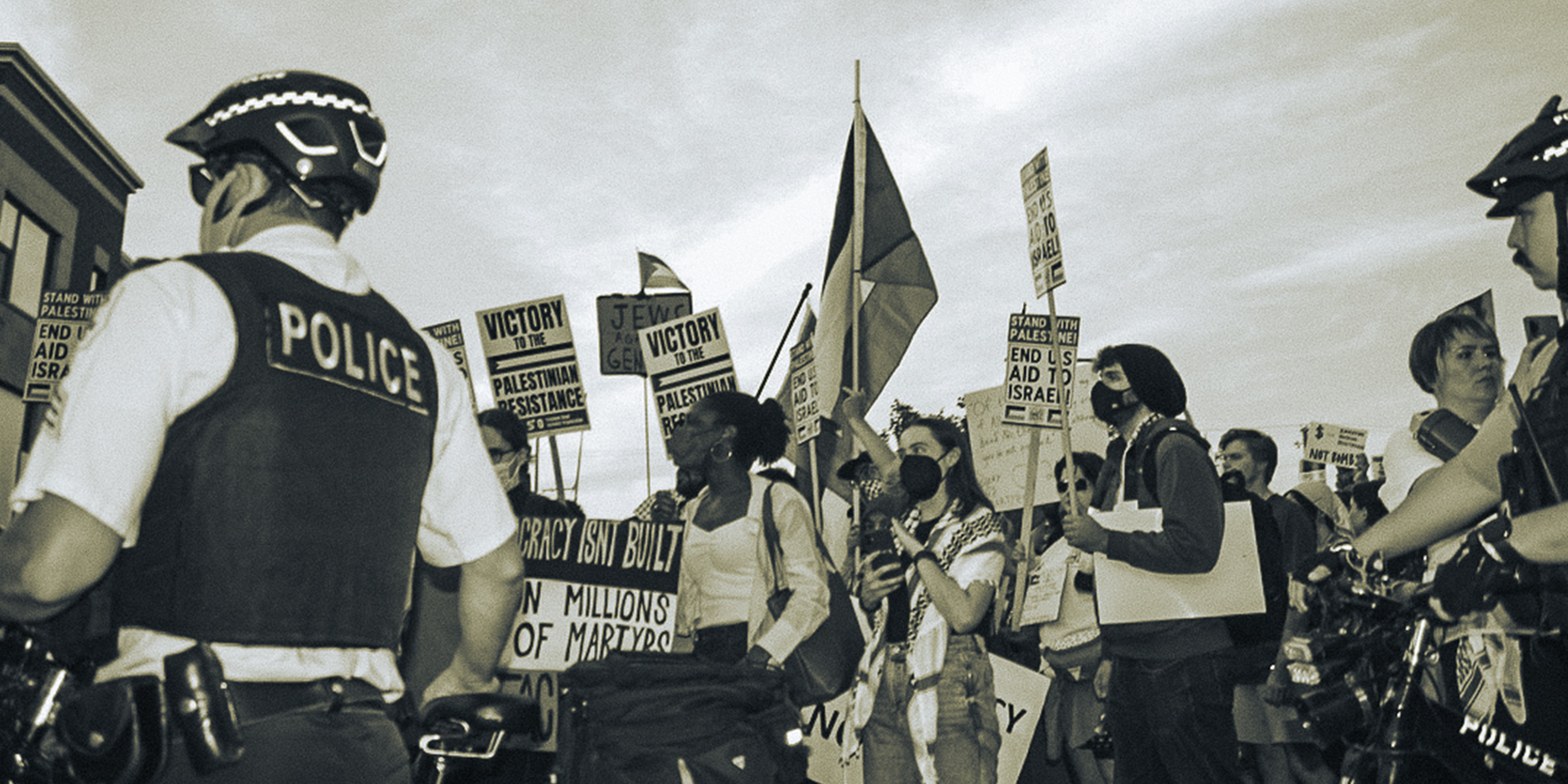
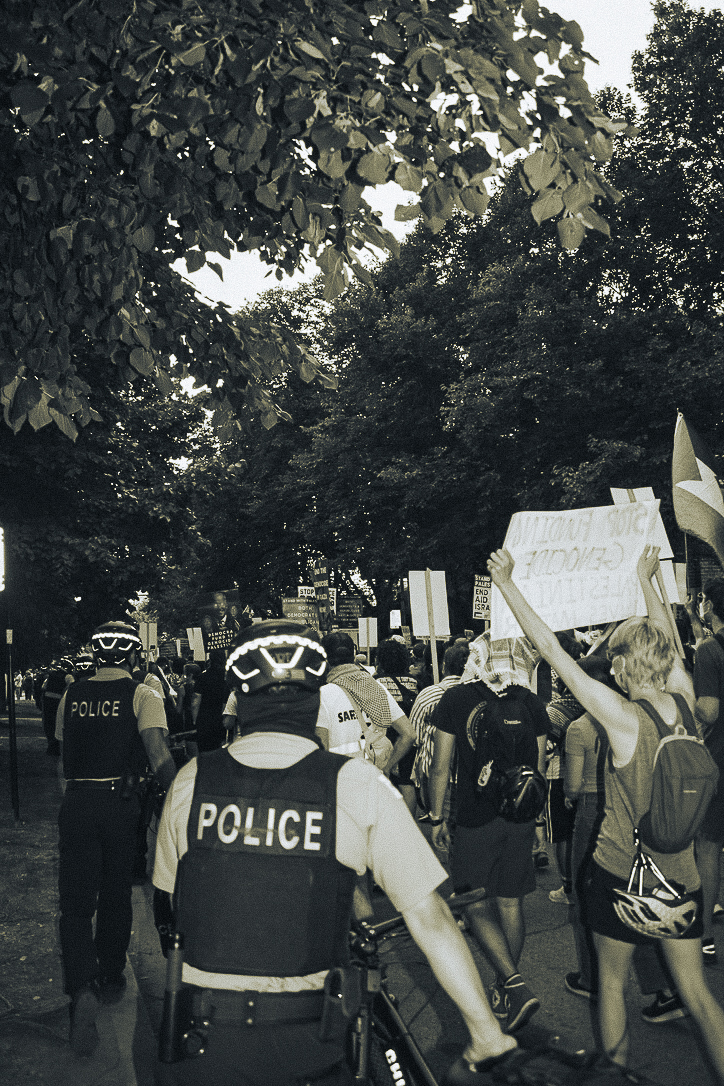
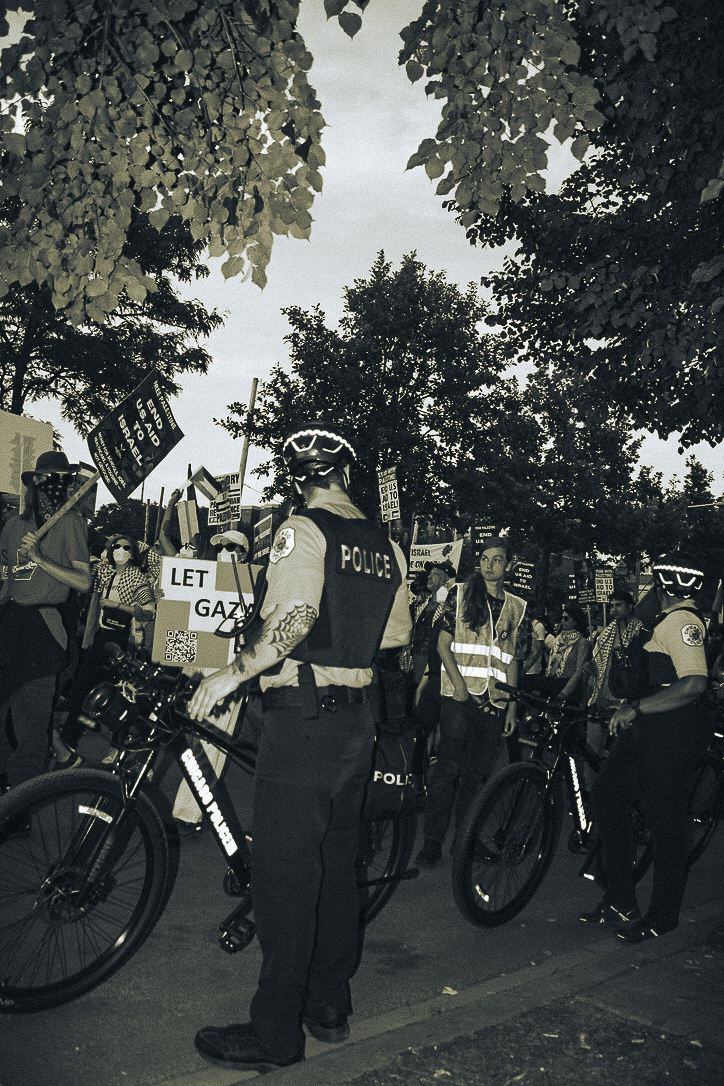

NO COMMENT